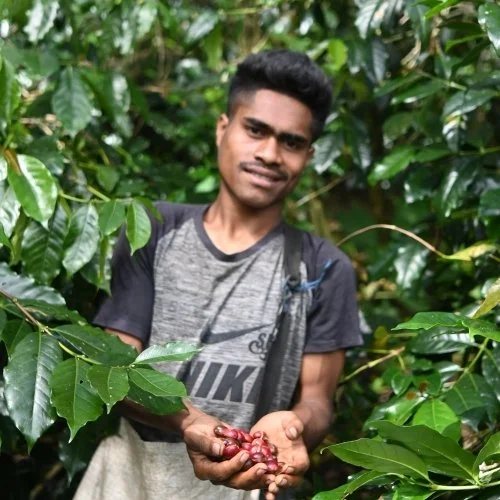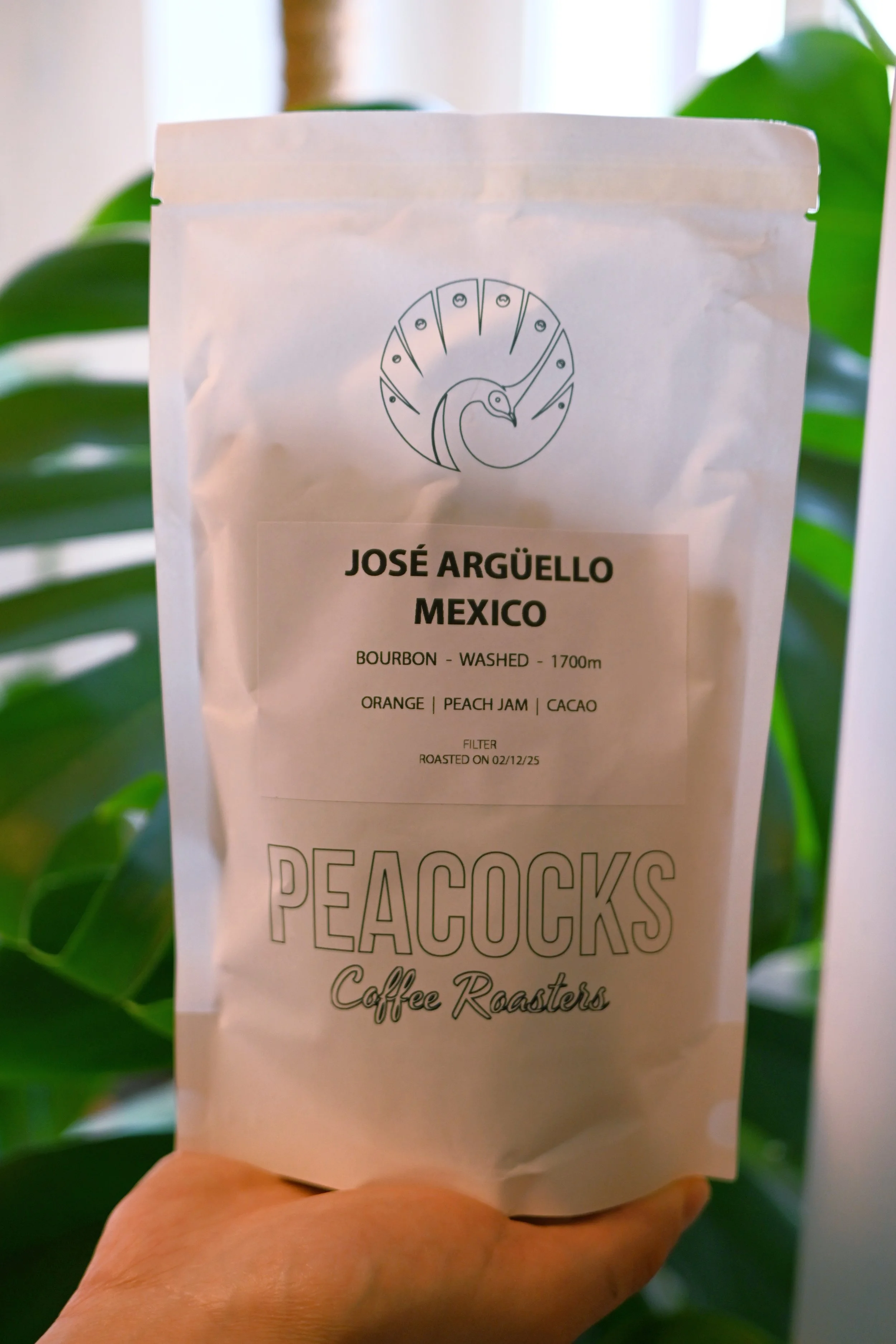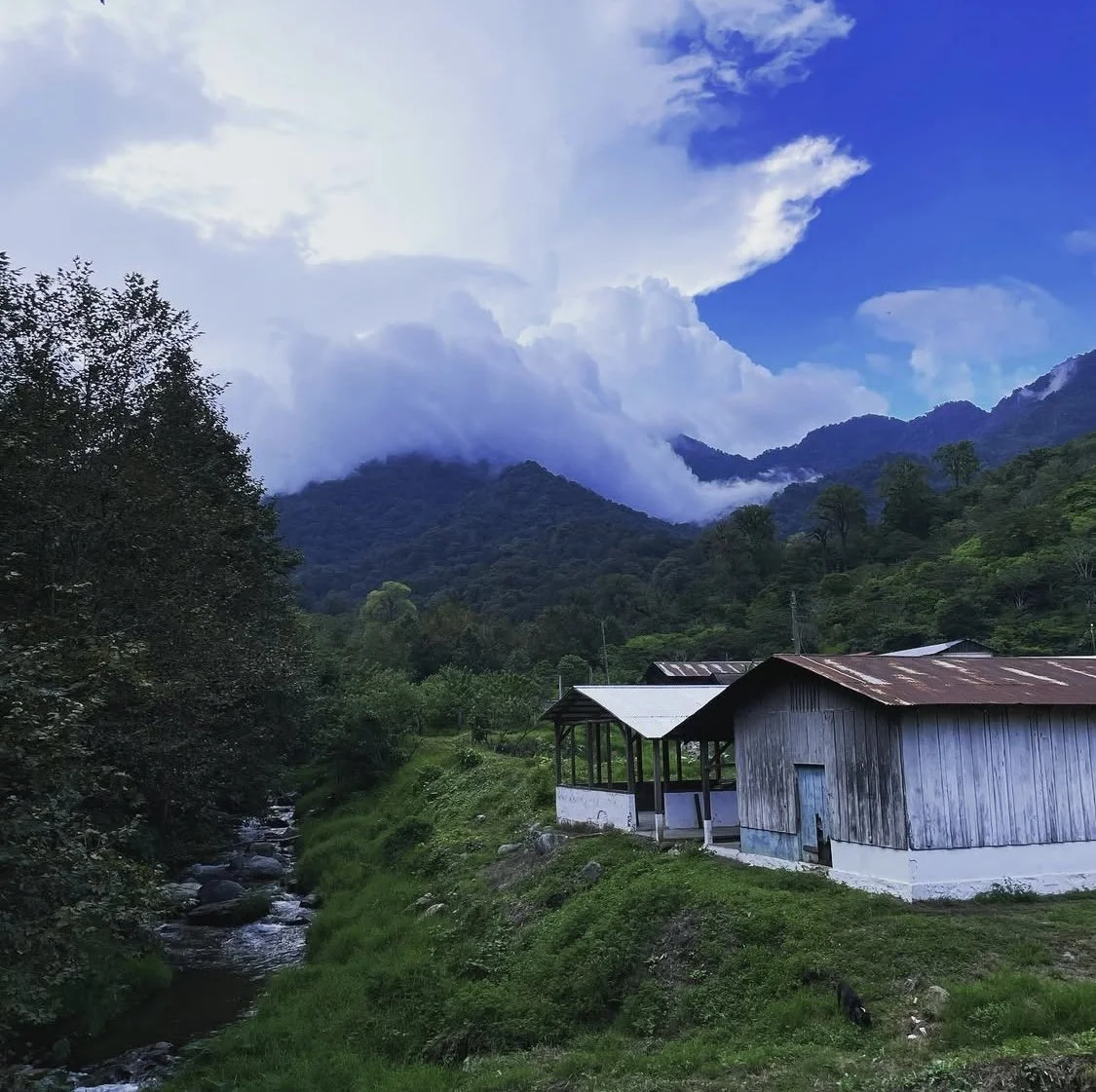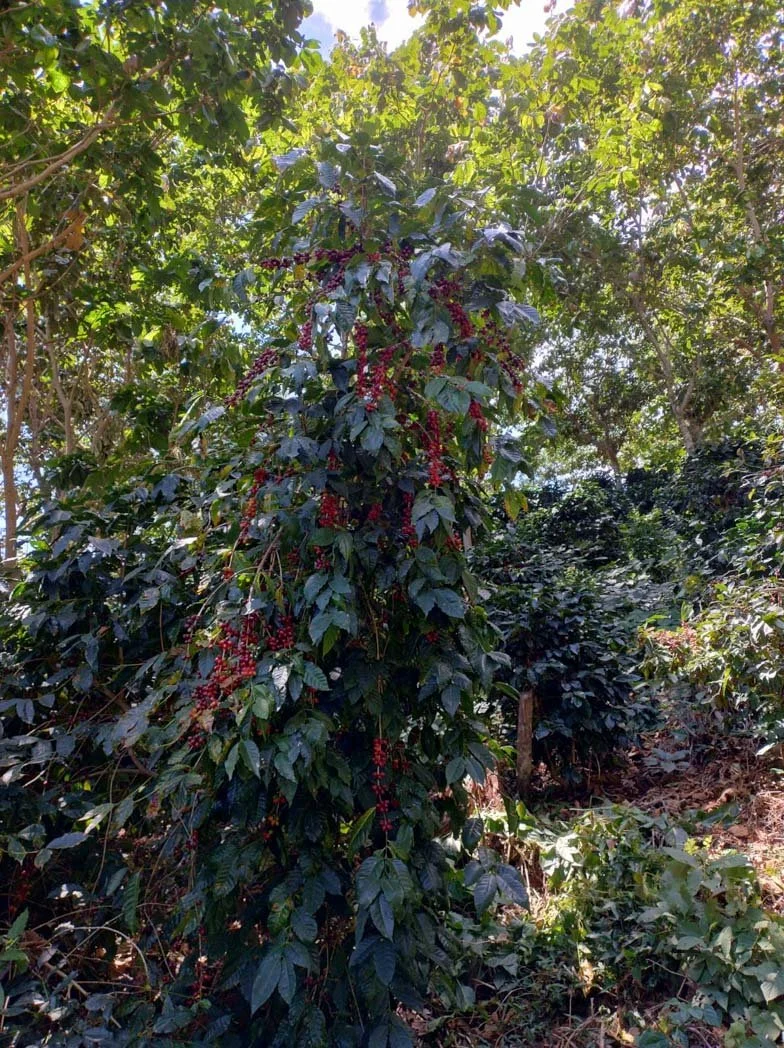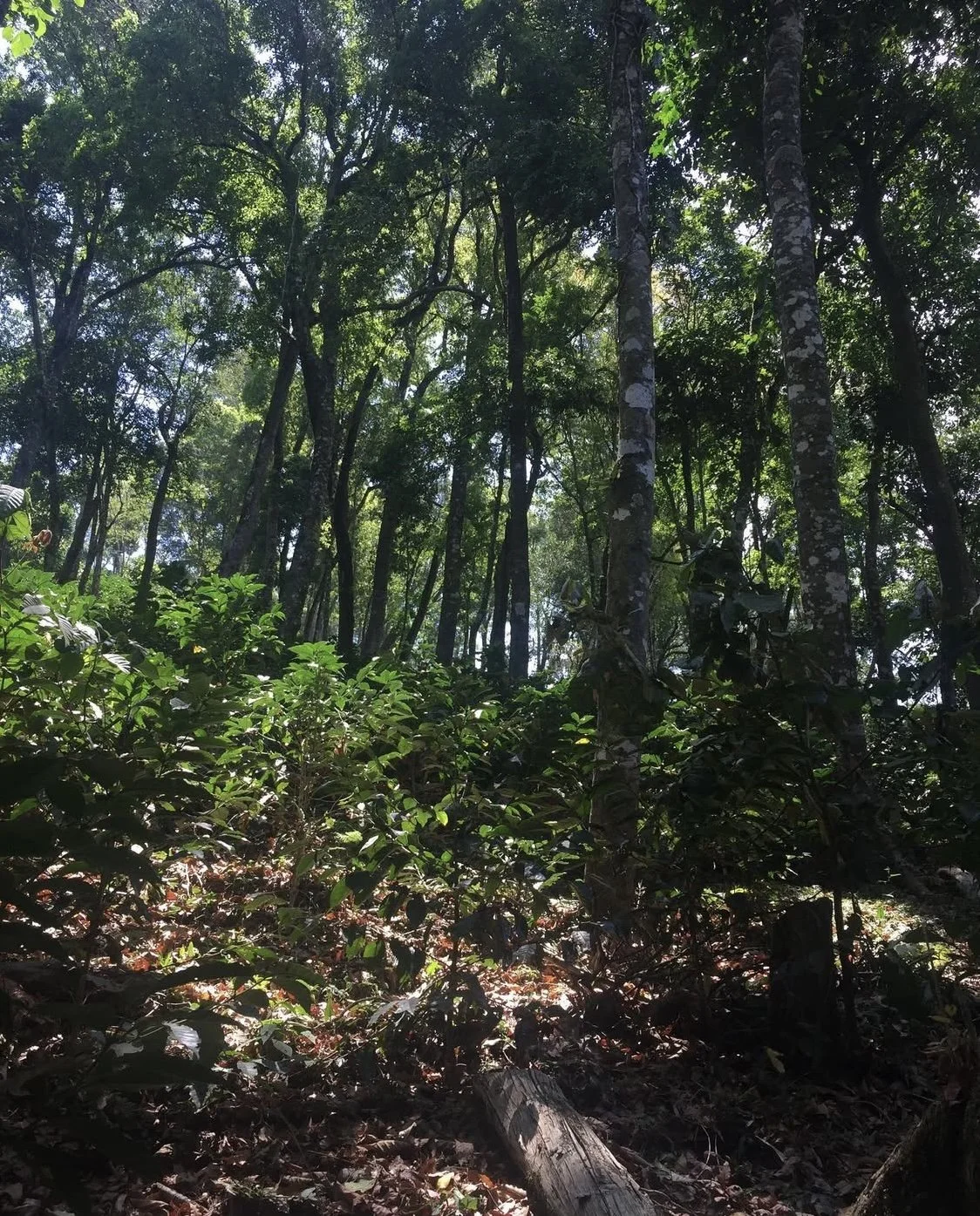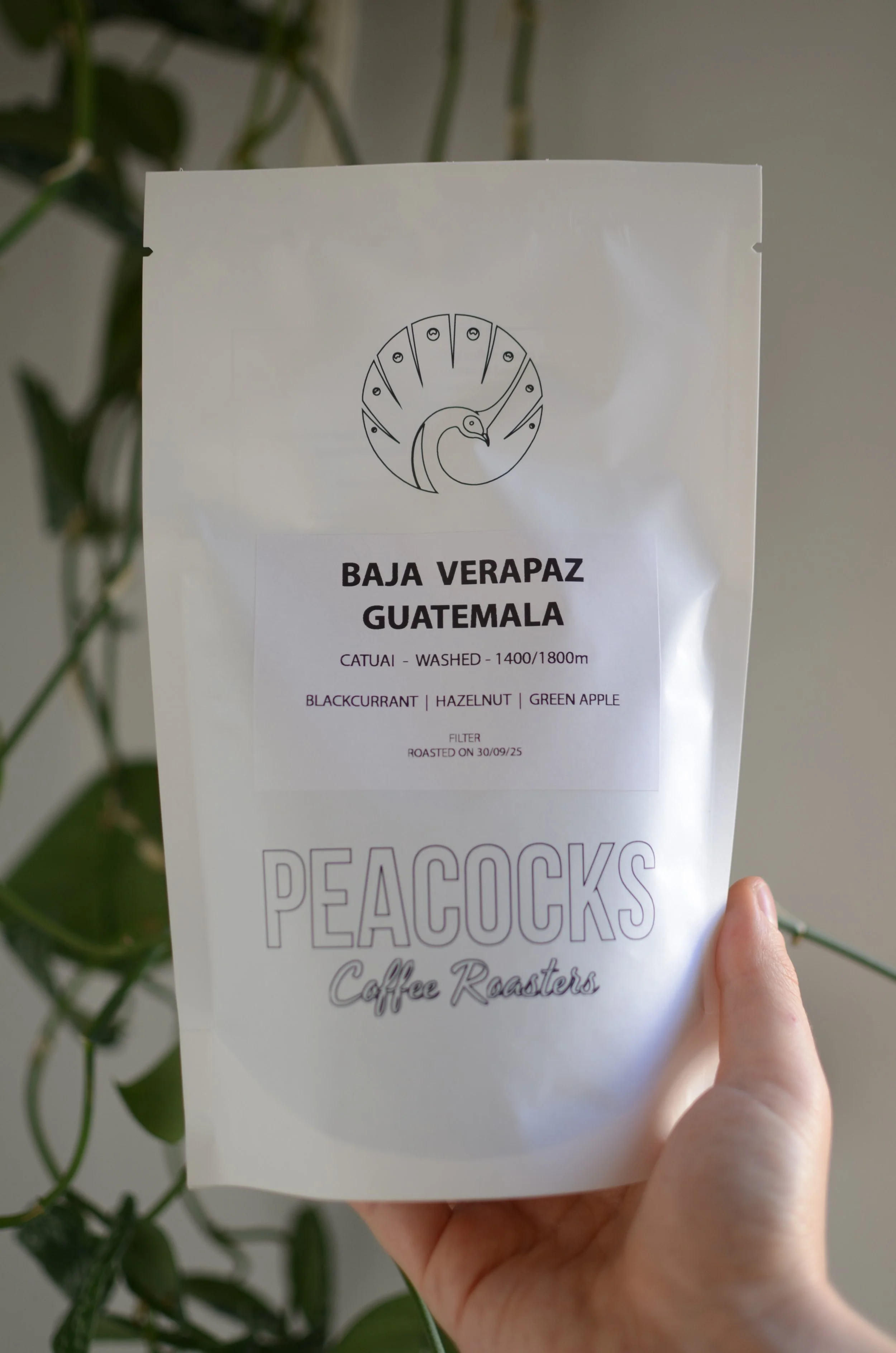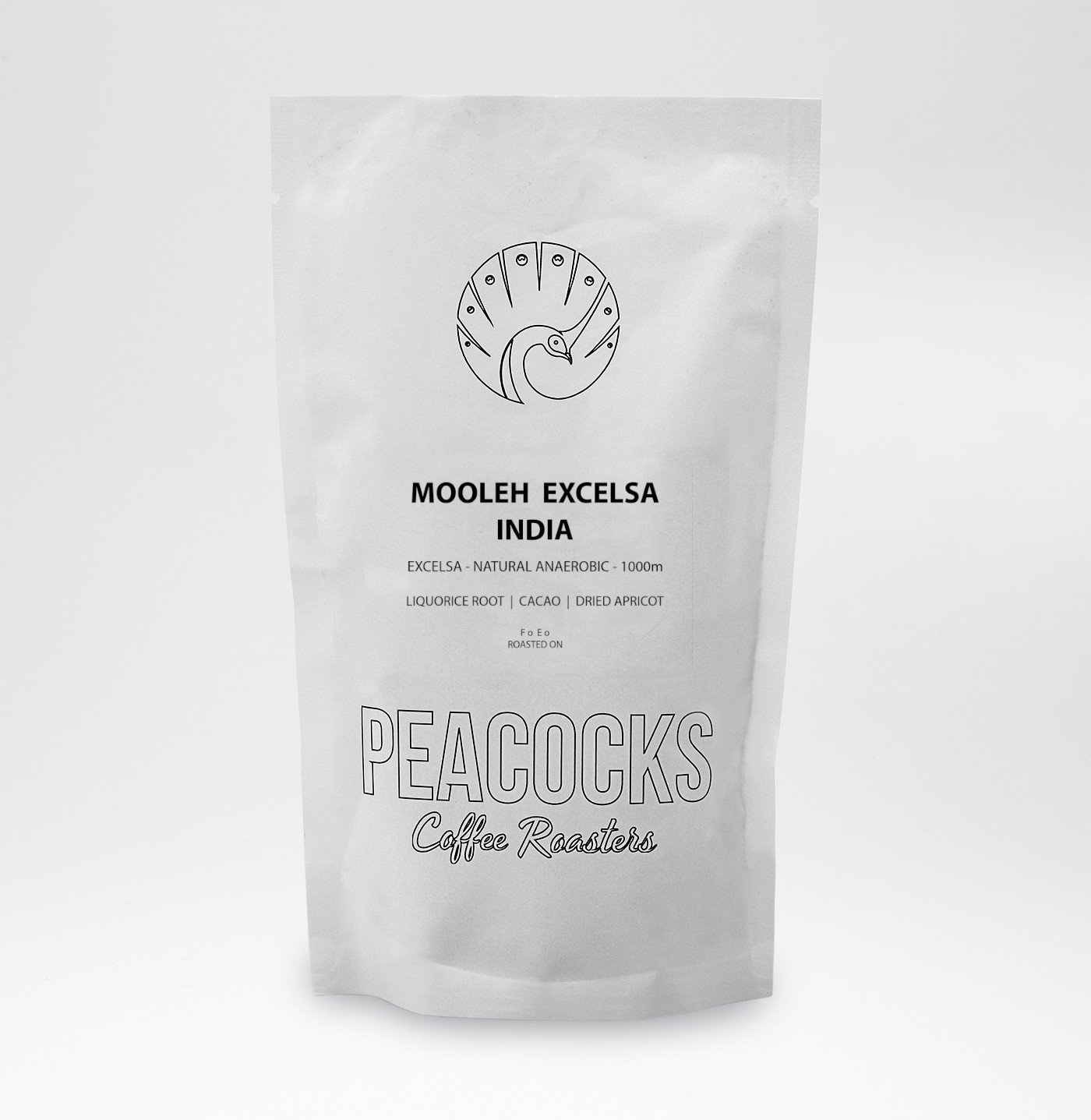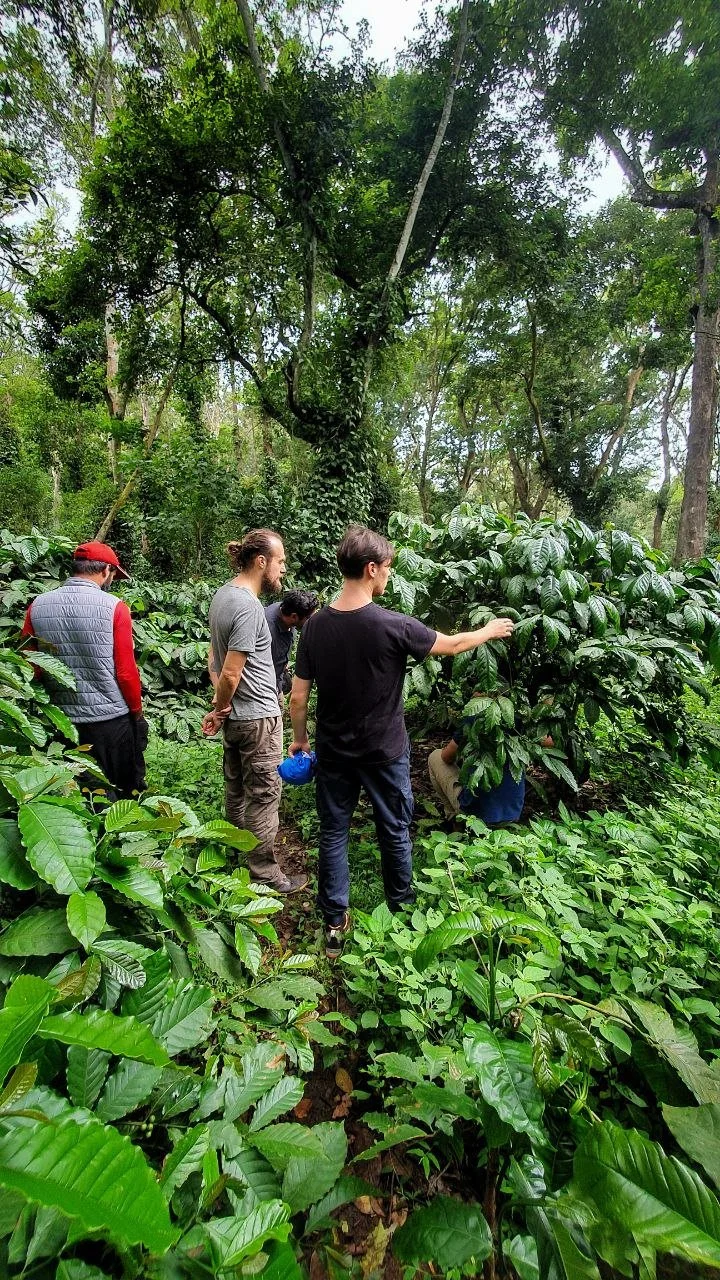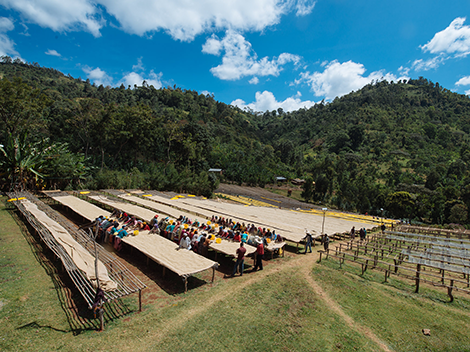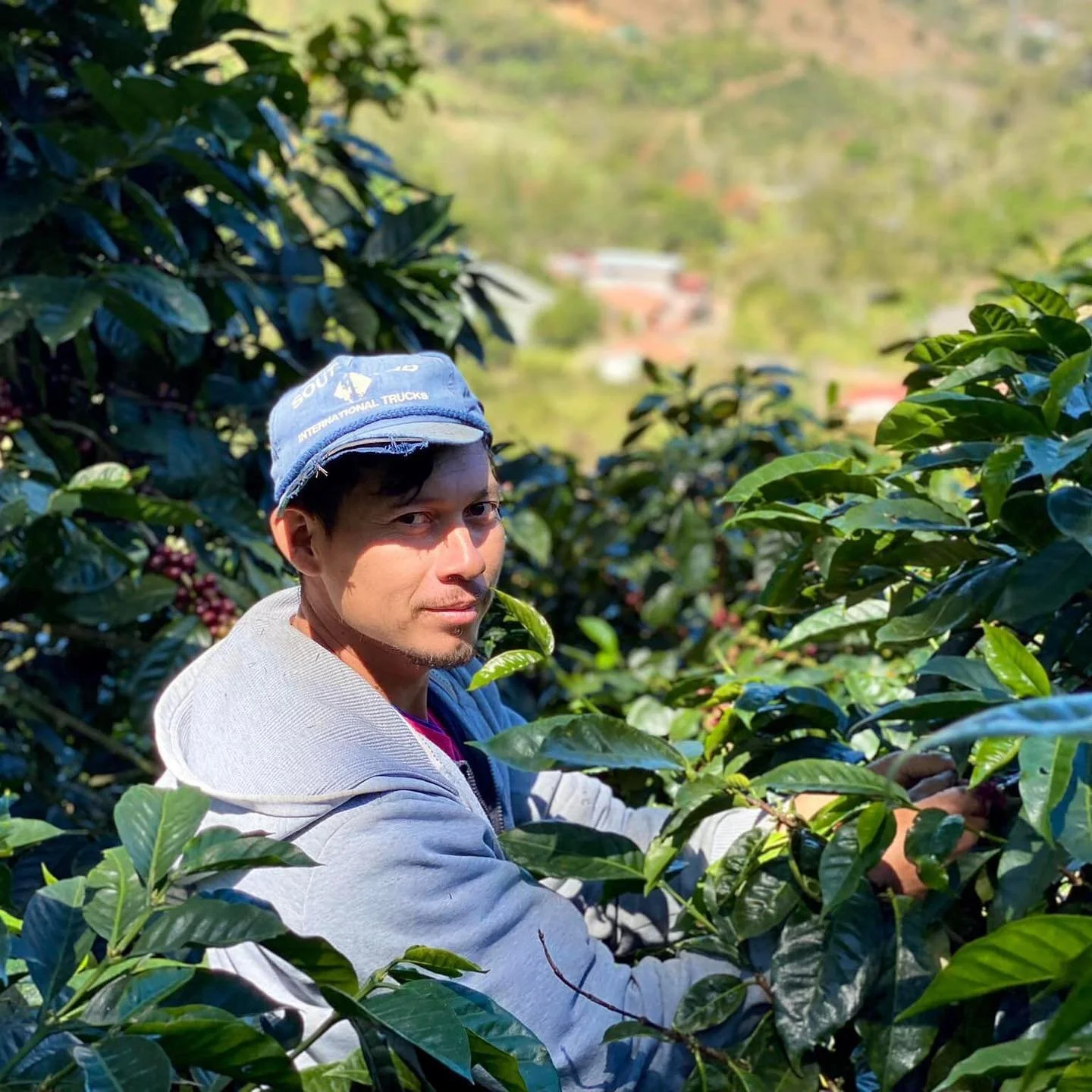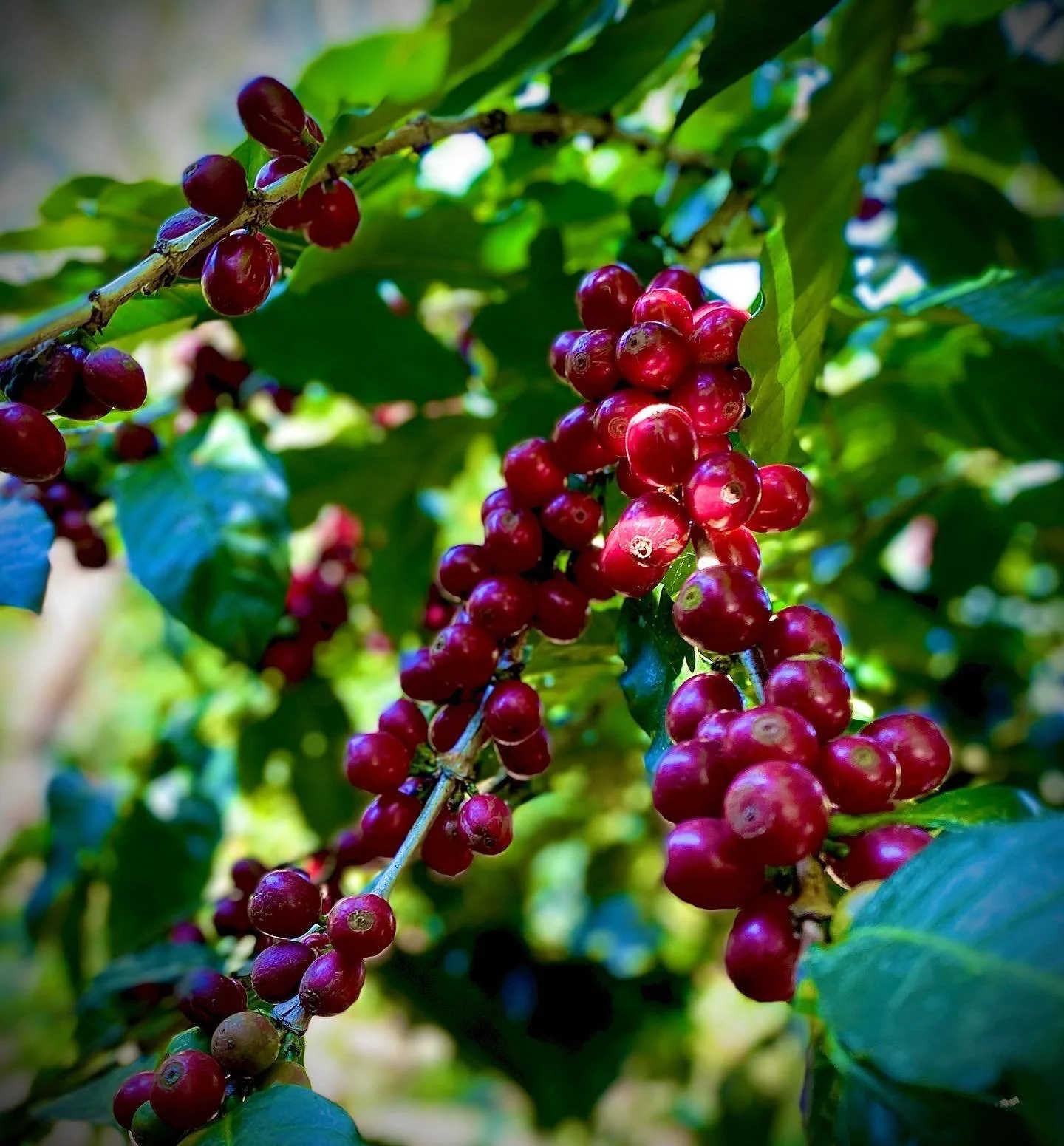Origin: Indonesia, Bajawa
Producer: Various smallholders
Altitude: 1200-1500 masl
Variety: S795
Process: Natural
About the producers
In the Bajawa region, in the heart of Indonesia, Arabica plantations thrive at altitudes between 1,200 and 1,500 meters. Here, the climate and volcanic soil combine to produce beans of outstanding quality.
The secret behind this land's fertility lies in the presence of three active volcanoes: Inerije, Wolobobo, and Ebulobo. Their mineral-rich soils provide the perfect environment for coffee plants to flourish. Still, the total area dedicated to Arabica cultivation remains modest, covering less than 10,000 hectares, estimates range between 5,000 and 10,000.
As a recognized participant in the Slow Food Coffee Coalition, Bajawa Forest Coffee also embraces transparency, environmental responsibility and the empowerment of local communities in the global coffee value chain.
The land is often highly fragmented: on average, farmers manage just one hectare each, and many do not have formal land titles. Much of the area is managed communally, under the system known as “tanah adat”, or “ancestral land.” These collective plots are granted to families under strict community rules, which prohibit selling the land or using it for purposes other than those agreed upon by the group.
This lot represents a coffee born not just from the land, but from the rich tapestry of tradition, community, and unspoiled nature that surrounds it.
About agroforestry practices, variety and processing
What truly distinguishes Bajawa coffee is its foundation in traditional agroforestry practices.
Here, coffee is not cultivated in open fields but thrives under the natural canopy of forested ecosystems. Many of the plants grow semi-wild, interspersed among native trees and other vegetation, without chemical treatments or intensive farming techniques. This biodiverse environment fosters spontaneous hybridization between coffee varieties, a naturally occurring process that contributes to the genetic richness of the crop and offers intriguing potential for further study.
Much of the coffee is grown within protected, state-owned forests, where the integration of agriculture and conservation is carefully regulated. Local authorities permit cultivation only under strict conditions: tall indigenous trees must be preserved, maintaining the forest's structure and ecological integrity. This method not only protects biodiversity and prevents soil erosion but also mitigates the risk of wildfires by keeping the forest intact.
This approach reflects a deeply rooted respect for the land, blending ancestral knowledge with sustainable stewardship. The result is a coffee shaped as much by the forest as by the farmers, embodying a rare harmony between tradition, community, and the living landscape.
S795, natural
S795, also known as Selection 795, is a notable Arabica coffee cultivar developed in India during the 1940s. It emerged from a cross between the Kent variety (a Typica hybrid) and S288, a natural hybrid of Arabica and Liberica. This breeding aimed to combine high yield with resistance to coffee leaf rust (CLR), a significant disease affecting coffee plants.
Notably, in Indonesia's first Cup of Excellence competition in 2021, twelve of the top 26 coffees featured S795, either as a single variety or part of a blend, highlighting its esteemed status among specialty coffees.
In the cup we think it tastes like:
cherry, prune and pink peppercorn.


